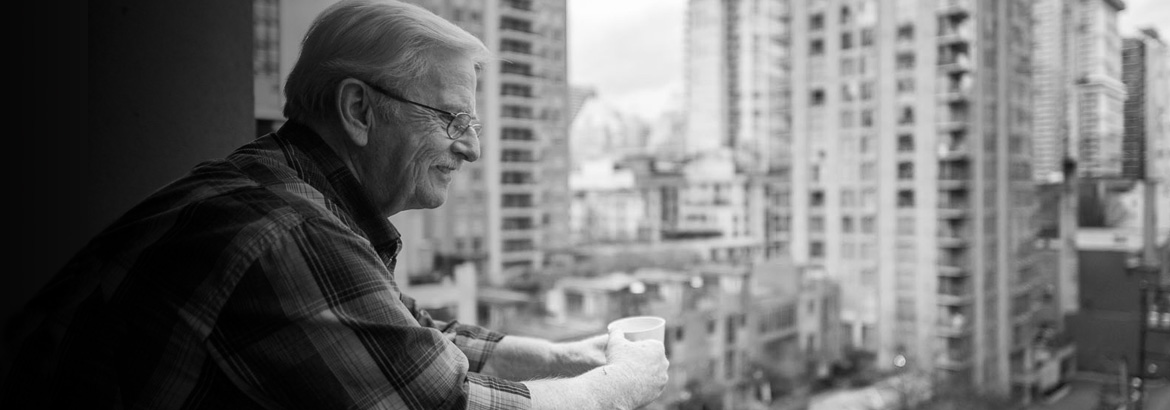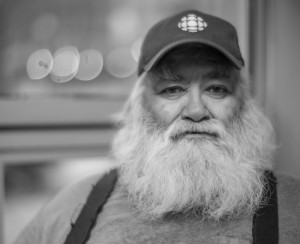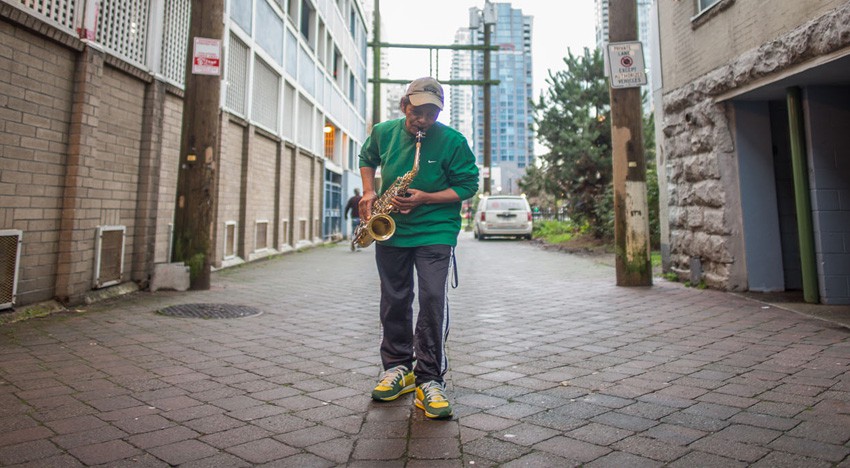
Our Neighbourhood
Looking around the Downtown South and Yaletown today, it is hard to believe that it used to be a largely low-income neighbourhood. When Jubilee House was built in 1986, there was not a single condo tower in the Downtown South or Yaletown. As of this writing, we count 38 towers around us. Even so, because of the foresight and values of civic leaders and planners, there are still approximately 1600 low-income apartments in this neighbourhood – ensuring that low-income people can continue to live here. Among them are the Society’s tenants.

“This neighbourhood has changed so much. It’s good some of us old-timers can still live here.” Sam, tenant since 1989
Seventy-five years ago the streets in the neighbourhood were lined with modest, wooden two-storey houses (like the three preserved on Helmcken Street at Richards), and people walked to jobs in the sawmills and railyards along False Creek, and in the commercial laundries and auto repair shops on side streets. By the 1980s, when Expo 86 came along, industry had largely moved out of the area, but many of the people stayed. And they were joined by aging loggers, miners, fishermen, and railway workers who found housing in rundown SROs in the old commercial hotels along Granville Street.
“I have lived and worked all over Canada and the Yukon. I first started working harvesting peat on Lulu Island, then onto the CP and CN railways lifting steel, fighting forest fires in BC, Yukon and Alberta, then sawmills, ship’s hand in the boiler room, and construction – too many jobs to remember.” Val, tenant since 1986
When the City planned the redevelopment of Yaletown and the Downtown South as dense, high-rise neighbourhoods, the City Councillors of the day realized that low-income residents would be priced out of the neighbourhood unless the City put in place a strong, pro-active policy of replacing low-income housing on a one-to-one basis. That was, and is, the City’s policy in Yaletown and the Downtown South. At that time – the early 1990s, City Councillors from all parties rallied around the value of social inclusivity. They agreed that it was crucial to ensure the continuing presence of low-income people in their long-standing neighbourhoods, and they committed the City to go the extra mile to make sure it happened.
“When I arrived in Vancouver, I worked as a waitress, elevator operator, chambermaid, helped with laundry and my favourite job was usherette in the theatre on Granville. I don’t know what my husband did – he packed up his clothes and left me.” Mona, tenant since 2004
The 127 Society for Housing helps fulfill that promise. We partner with the Province through BC Housing, the Federal Government through CMHC, the City of Vancouver, and developers to make sure that the promise is kept.

Joanne, a tenant since 2005, plays sax in a jazz band that she and some neighbours put together.